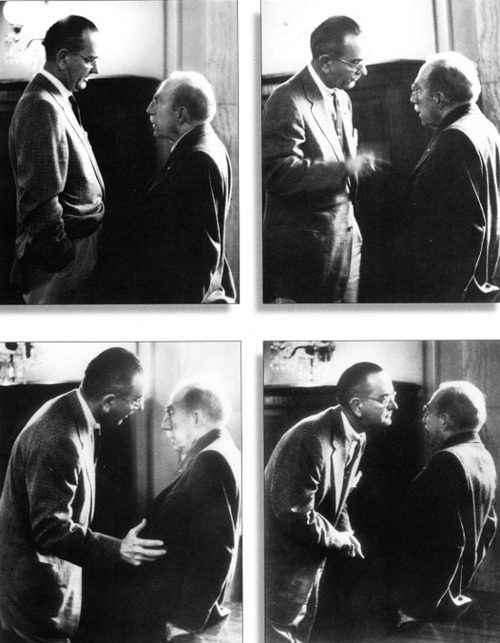Sunday, March 26, 2017
What's A Congress For, Anyway?
As I mentioned last week, I've gone down a bit of a LBJ rabbit hole. My visit to his presidential library has prompted me to tackle Robert Caro's famous multipart biography. Reading about Johnson's work as a staffer for a House member in Washington in the 1930s while Trump's attempt to get the AHCA through Congress crashed and burned was quite a contrast. In the section I was reading with CSPAN on in the background, Caro's book discusses Sam Rayburn's ability in getting legislation through committee, a reminder that those who sought power in Congress once actually had a clue about how to exercise it.
I was very excited that the AHCA failed so miserably. I experienced levels of Schadenfreude on par with watching Duke lose in the tournament or that time that Fox News reporter got waterboarded on TV. However, I am beginning to wonder how long our country can continue to have its highest levels of government be such an unmitigated shit show. In the case of the presidency, this is a new thing, but Congress has been on this path since 2010, and shows no sign of changing.
Since the Tea Party wave in 2010, Congress has been dominated by a gang of right wing Bolsheviks who hate the very government they're supposed to be managing. President Obama was able to pass legislation during the first two years of his presidency despite unprecedented opposition, after 2010 that opposition had the numbers to bring everything to a halt. These ideologues used the debt ceiling to hold the country hostage, and voted several times to repeal Obamacare.
Today it is obvious that those votes were made without a single clue as to what was going to replace Obamacare. Once they actually had to come up with something they were like the student who's been skipping class all semester who thinks they can handle an intense written final test, and hand in the test after about twenty minutes because they know they have no clue and just want to go home.
A majority of the Republican congressional delegation has come in since Obama's election, meaning that a majority of House Republicans have no memory of a time when they were actually passing legislation. I don't suspect they will ever learn how to do it, since their main path to holding onto power is to get positive coverage from Fox News. Paul Ryan is the avatar of this new political modus operandi. He was never someone who successfully passed important legislation, but a corporately feted ideologue whom the media has been inexplicably fawning over.
Back in early 1964, after he had come to power after Kennedy's assassination, Johnson discussed with his advisors his desire to get the long delayed and filibustered civil rights bill through Congress. They were a bit taken aback by this, knowing what a minefield it could be. Johnson's retort was "What's a presidency for, anyway?" And for all of that man's many, many faults, he understood his fundamental job was to get power and then use it.
Congressional Republicans have proven very adept at getting power, but very maladroit at using it constructively. A lot of this has to do with ideological rifts within the party, for sure. I also think that the dynamics of Congress' relation to its constituents have changed in significant ways. The number of representatives has been frozen at 435, meaning that members must represent larger and larger constituencies, with much less time for contact with their voters. (The need for politicians to spend all of their time fundraising has compounded this.) As local media across America has been hollowed out, representatives don't need to answer tough questions from local reporters, and if they are conservative, can get a bigger platform by playing to Fox News and talk radio. (Gerrymandering has also made such a media strategy effective.) They don't need to deliver the goods to their constituents, who are increasingly alienated from what their representatives are doing. What they can do effectively is block their opponents from using power.
I know I have said this before, but it really is time to reform our out of date, failing model of government. While we often think of the Senate's two Senators per state rule as the prime example of this issue, the House has a lot to answer for, too. It's supposed to be the "people's house," the one part of the national government where voters can actually be heard. After all, that's the point of the two year election cycle, which in today's environment only increases the focus on fund raising. I would love a system where the number of representatives in the House was tripled and the Senate was done based on population where each state has several at large seats chosen through proportional representation. That's never going to happen, so I guess we'll just have to persist with a completely dysfunctional Congress until sanity or collapse happens.
Subscribe to:
Post Comments (Atom)

No comments:
Post a Comment